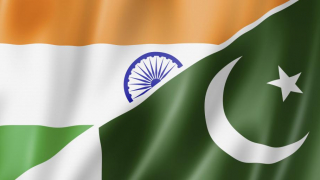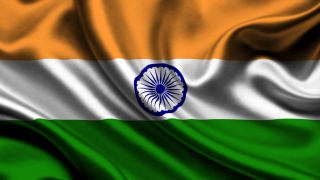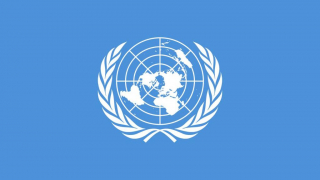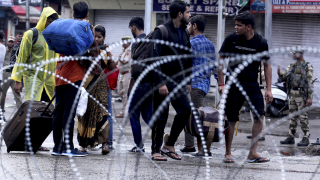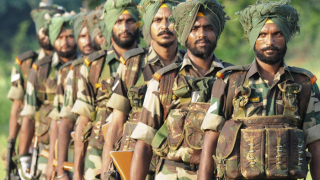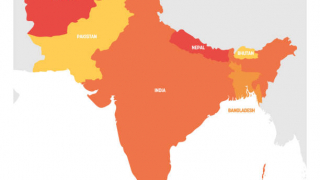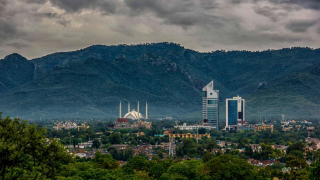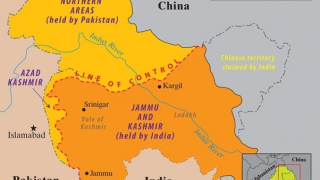Pakistan-Sri Lanka Relations & Indian Insecurity
07.02.2020
Insecurity kills everything beautiful, just like the insecurities of India are ruining the peace, stability and progress of the entire South Asian region.Not even a single country that borders India has good relations with the country.
India’s strained relations with Pakistan and China make sense, given the negative historical baggage, and conflict of interest over several strategic and political issues. But adverse relations with much smaller countries like Bangladesh, Nepal, Bhutan and Sri Lanka makes no sense at all, especially when the economic survival of majority of these small states depend on maintaining good relations with India.
Aggressive pursuit of a foreign policy based on Chanakyan principles has landed India in isolation within the South Asian region. Decades of coercive policy orientation and aggressive posturing towards its immediate neighbourhood has turned Indian policy makers into insecure schizophrenics. They view every situation as a zero-sum game. Such state of affairs has not only had a negative impact on the thinking of the general Indian public but has also turned South Asia into a hub of insecure states that is in a state of perpetual security dilemma.
A more recent source of India’s insecurity is the ever-growing bilateral relationship between Pakistan and Sri Lanka.Normally, anti-Muslim and anti-Pakistan sentiment is propagated by the Indian media on a regular basis. But for the past few months, a new trend can be witnessed in the Indian print and electronic media that indicates that Pakistan is interfering in India-Sri Lanka bilateral relations.
Upon thorough scrutiny of Indian allegations against Pakistan, the evidence which attempted to back Indian narrative was either non-existent or extremely ridiculous. For instance, an article published in a Tamil newspaper (Virakesari) in November 2019 claimed that the Pakistani PM’s phone call to the newly elected Sri Lankan President Gotabaya Rajapaksa to congratulate him on his election victory is a strange development and it means that Pakistan is trying to sabotage India-Sri Lankan relations.
The above mentioned article is just one specimen of the type of narrative building that is being done within India today. However, this is a discussion for some other day. To counter such ill-conceived narrative propagated by the bigoted Indian media, this article will give an overview of the excellent Pakistan-Sri Lanka relations. It will also touch upon some other dimensions of this relationship as well.
Pakistan and Sri Lanka have always maintained cordial relations with each other ever since the latter gained independence from British rule in 1948.Whether it is Sri Lanka’s support to Pakistan during the Soviet invasion of Afghanistan or the provision of transit and refuelling space to Pakistani forces during the Indo-Pak war of 1971, Sri Lanka has always looked out for Pakistan’s interests. The country also played a significant role in restoring Pakistan into the Commonwealth. It was none other than Sri Lanka that showed resolve and helped in ending Pakistan’s isolation in international cricket. Despite many warnings, the Sri Lankan team visited Pakistan in 2009.
The bilateral relationship between Pakistan and Sri Lanka is based on mutual trust and respect. However, unfortunately, this trust and confidence has not been reflected in other fields such as health, trade and commerce. Nonetheless, both countries have made attempts in the past to boost commercial exchanges between the two countries. For example, in August 2002, a Free Trade Agreement (FTA) was signed between Pakistan and Sri Lanka to shore up mutual trade. Then in 2004, Pakistan extended a credit line of US$10 million to buy Pakistani products. To this effect, an agreement was also signed between the two countries during the visit of President Chandrika Kumaratunga’s visit to Pakistan in February 2005.
Furthermore, in 2006, during President Mahinda Rajapaksa’s visit to Pakistan, Sri Lanka offered Pakistani business community a credit line of US$ 10 million to facilitate Pakistani imports from Sri Lanka.
Moreover, Pakistan-Sri Lanka relations have been soaring in the field of defence for several decades now.During the course of Sri Lanka’s war against the Liberation Tigers of Tamil Elam (LTTE), Pakistan emerged as the leading small arms supplier to the island nation.
Defence partnership between the two countries began in 1999 when Pakistan offered Sri Lanka a credit line of US$ 20 million for procurement of defence equipment. Moreover, in November 2004, both sides agreed to strengthen cooperation in this domain with the intention of reviewing the credit line for the purpose of its operationalization during President Kumaratunga’s visit to Pakistan. The total purchases till December 2007 were to the tune of US$ 50 million.
In 2008, there was a sudden jump in the quantity of defence merchandise procured by Sri Lanka from Pakistan. This was due to the escalation of an ethnic war that was raging in Sri Lanka for almost three decades. During a meeting between the army chiefs of Pakistan and Sri Lanka in 2008, the former agreed to supply the latter with 22 Al-Khalid main battle tanks worth US$ 100 million besides other high- tech weapons and equipment.
Even though Pakistan-Sri Lanka relationship is on an upward trajectory and strengthening with each passing year, there is no doubt that a lot still needs to be done. There is plenty of room for substantial improvement and more avenues of cooperation need to be explored in order to harness maximum potential.
Cooperation in the field of defence should be maintained and increased but other areas should be explored to strengthen this relationship such as culture, education, health, tourism and infrastructure to name a few.
The above stated short account of Pakistan-Sri Lanka relationship clearly indicates that the two countries have always enjoyed friendly and tranquil relations irrespective of the governments in power. The Indian insecurities regarding Pakistan-Sri Lanka relationship stems purely out of the zero-sum mentality mentioned earlier. Rather than making attempts to sabotage relationships between other countries in the region, India should try and make amends with all its immediate neighbourhood and help in creating a friendly and positive environment.
Being the largest country in the region in every sense of the word, rather than feeling envious and jealous of good relations among other regional countries, India should act as a unifier in the region and avoid embarking on a path that leads to further division within the South Asian region.


